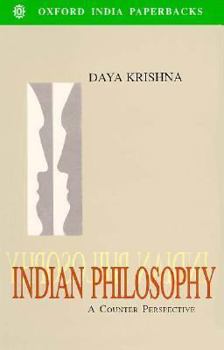Indian Philosophy: A Counter Perspective
Select Format
Select Condition 
Book Overview
Most writings on Indian philosophy assume that its central concern is with moska, that the Vedas along with the Upanishadic texts are at its root and that it consists of six orthodox systems knowns as Mimamasa, Vedanta, Nyaya, Vaisesika, Samkhya, and Yoga, on the one hand and three unorthodox systems: Buddhism, Jainism and Carvaka, on the other. Besides these, they accept generally the theory of Karma and the theory of Purusartha as parts of what the Indian tradition thinks about human action. The essays in this volume question these assumptions and show that there is little ground for accepting them. A new counter-perspective is presented for the articulation of the Indian philosophical tradition that breaks from the traditional frame in which it has usually been presented.
Format:Paperback
Language:English
ISBN:0195638379
ISBN13:9780195638370
Release Date:May 1996
Publisher:Oxford University Press, USA
Length:232 Pages
Weight:0.60 lbs.
Dimensions:0.5" x 5.5" x 8.4"
Customer Reviews
0 rating





